Supporting the Next Generation at Kirin and Contributing to the Future of People and the Earth in the Immunology Domain ~"Lactococcus lactis strain Plasma"~
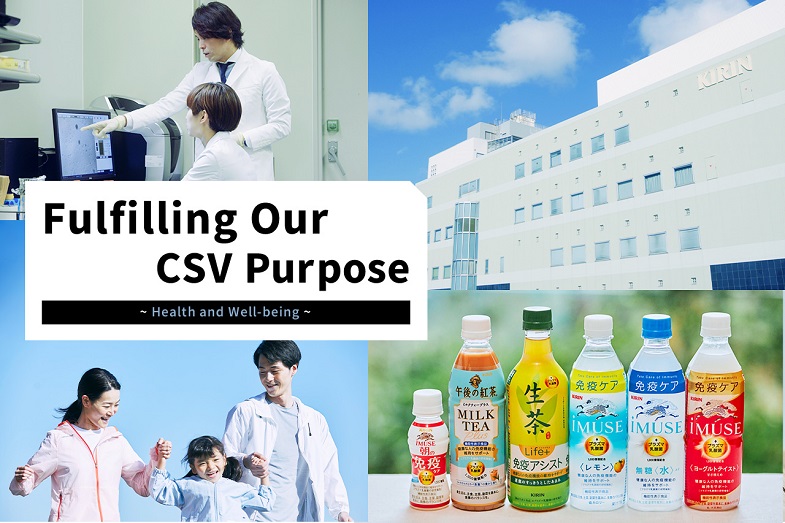
“Lactococcus lactis strain Plasma,” discovered in 2010 by the Kirin Group, provided the basis for Japan's first registered Foods with Function Claims (FFC) products related to the immune system. In October 2021, the Kirin Group releases two FFCs that use "Lactococcus lactis strain Plasma": Kirin Gogo-no-Kocha Milk Tea Plus and Kirin Namacha Lifeplus Immune Assist.
The Kirin Group has declared its aim to become “A global leader in CSV,* creating value across our world of Food & Beverages to Pharmaceuticals.” As the Group aims to further expand the Health Science Business, "Lactococcus lactis strain Plasma," which supports consumers' health and well-being, will be an important element in making its corporate vision a reality.
How was this "Lactococcus lactis strain Plasma," which will support the future of Kirin, discovered, and what kind of value will it create? This article reviews the background and history for the Kirin Group's positioning of the Health Science Business as its next growth domain, and discusses the future that the Group is aiming for.
*Creating Shared Value:Combined added value for consumers as well as for society at large
Brewing Philosophy of "Reverence for Life" Means Studying Humbly from Living Things
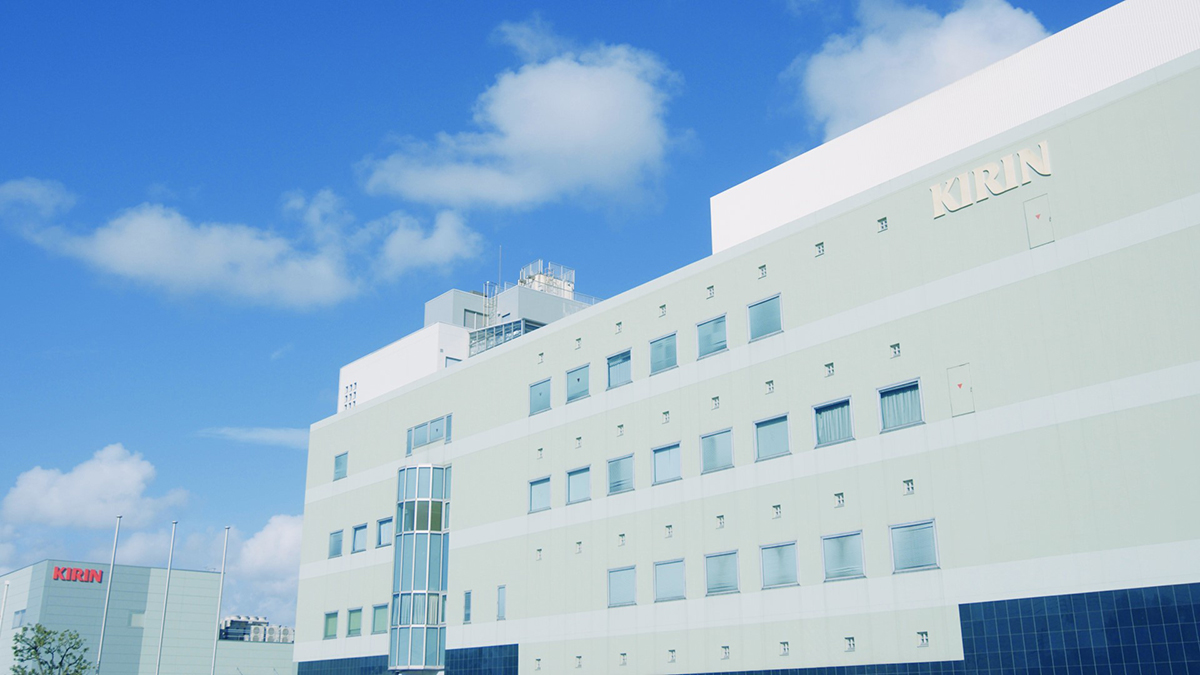
Many people may find it surprising that the Kirin Group is enhancing its efforts in the Health Science domain. For the Kirin Group, however, it is completely natural. This is because the Kirin Group, which originated as a brewery, operates its businesses in none other than the fermentation industry.
The philosophy of the founding beer business has been handed down without interruption from generation to generation. The first thing that brewers learn after joining Kirin is its brewing philosophy of "Reverence for Life." All the ingredients of beer – malt, hops, and water – are blessings from nature. Yeast, which breaks down the sugar in the wort into alcohol and carbonic acid and determines the flavor of beer, is also a microorganism. Such microorganisms are “Life” itself. Yeast greatly influences the flavor of beer, so the fermentation mechanism of yeast must be studied in detail to produce good beer.
In addition to mastering its brewing skills, the Kirin Group has also gone a step further and continued to study the microorganisms that play key roles in fermentation from a biochemical perspective. For the Kirin Group, which has continuously come face to face with “life,” the pursuit of science is inseparable from the production of beer.
Based on the Group’s belief in “Reverence for Life,” Kirin Brewery researchers have had various successes in their research. For example, “diacetyl rest,” a method of controlling the unpleasant smell from "diacetyl" generated during the yeast fermentation process. This was an application of Kirin’s research, in which it identified the mechanism by which diacetyl is generated, and disclosed its knowledge with the aim of improving the quality of all beers around the world. Researchers at Kirin Brewery also discovered bacteria in brewery wastewater that produces the enzyme “Zymolyase,” which dissolves cell walls and is essential for bioscience.
Kirin Brewery researchers identified the precursor for diacetyl and clarified the mechanism by which it is generated in 1968-1969, while Zymolyase was launched in 1973. Both of these discoveries are the result of continuous research into fermentation mechanisms and microorganisms. As such, Kirin has been continuously practicing "Reverence for Life" and “cultivating the soil of science” since long before the Group entered the Pharmaceuticals Businesses.
Kirin's R&D Recognized by Global Biopharmaceutical Company
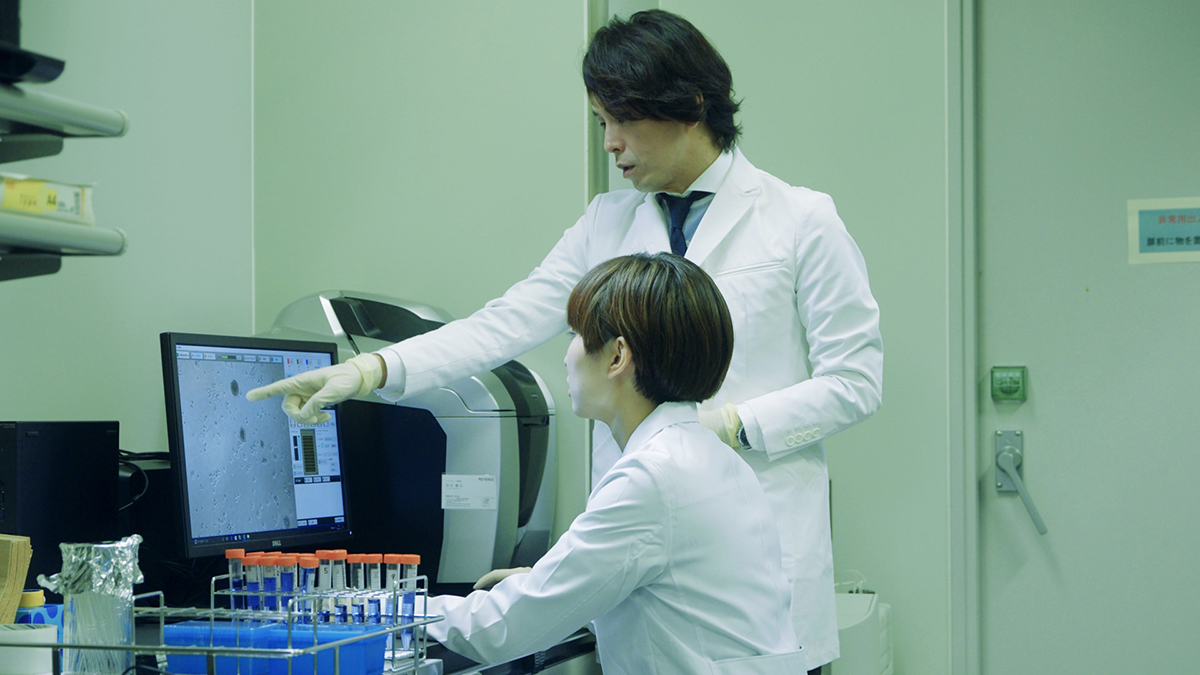
Leveraging its strength in R&D, the Kirin Group entered the Pharmaceutical Business about 40 years ago. In 1984, the Group accelerated its Pharmaceutical Business by establishing Kirin-Amgen, a joint venture with Amgen (US), which subsequently grew into a global biopharmaceutical company. The words of Amgen CEO at the time, Gordon Binder, highlighted Kirin’s stance.
"We had much in common, such as fermentation know-how. Kirin also understood the importance of R&D. It was probably the only beer maker in the world to boast a bona fide science-based R&D department. To most beer manufacturers, brewing was an art.” (Gordon Binder, former Amgen CEO)
Gordon Binder praised Kirin’s R&D, which is based on science. Kirin and Amgen accumulated results with a solid shared foundation of science and technology. Just six years after the joint venture was founded, in April 1990, Kirin released ESPO® (English brand-name: “EPOGEN®),” which acts on the cells that form the foundations for red blood cells and is used to treat anemia. The six years that it took to commercialize this drug was an astonishing speed for the pharmaceutical industry. Kirin-Amgen has since continued working to produce results in the domain of pharmaceuticals related to blood.
One of the reasons for Kirin's success in pharmaceutical development is differentiation in terms of the areas where the Group focuses. In the 1980s, when Kirin entered the biopharmaceutical industry, cancer research was flourishing. Interferon was discovered to have an anticancer effect, and many companies focused on research into drugs to treat cancer.
Under these circumstances, the Kirin Group focused on blood and immunity. With regard to blood, the Group continued R&D at Kirin-Amgen. Regarding immunity, the Group supported the establishment of the La Jolla Institute for Immunology (US), which began operating in 1988. For more than 30 years since, Kirin has continued to support research at the La Jolla Institute for Immunology. Now, one of the major achievements on the verge of bearing fruit in the field of immunology is "KHK4083," a treatment for atopic dermatitis.
The lead antibody in "KHK4083" was discovered through joint research between the La Jolla Institute for Immunology and the US research team of Kyowa Kirin. Kyowa Kirin operates the Pharmaceuticals Business, and was founded in 2007 as a result of a strategic merger between the Kirin Group and the Kyowa Hakko Group. The founding business of Kyowa Hakko's predecessor, Kyowa Hakko Kogyo, is a biochemical business that applies alcohol fermentation. As such, fermentation technology forms the foundation for the businesses of both Kyowa Hakko and Kirin. "KHK4083" has achieved excellent results in Phase 2 clinical trials and is currently awaiting Phase 3 clinical trials, the final stage of clinical trials.
There are significant expectations that “KHK4083” may become a first-in-class* treatment for atopic dermatitis, as shown by the fact that global biopharmaceutical company Amgen, a partner of Kirin’s, has now announced its intention to enter into a joint development and commercializing agreement for the drug.
*first-in-class: Breakthrough therapy. Refers to original pharmaceuticals that are particularly novel and effective, that differ from conventional pharmaceuticals in terms of basic chemical structure, and that have the potential to significantly change existing treatment systems.
Japan's First FFC for the Immune System, Based on Fermentation and Biotechnology
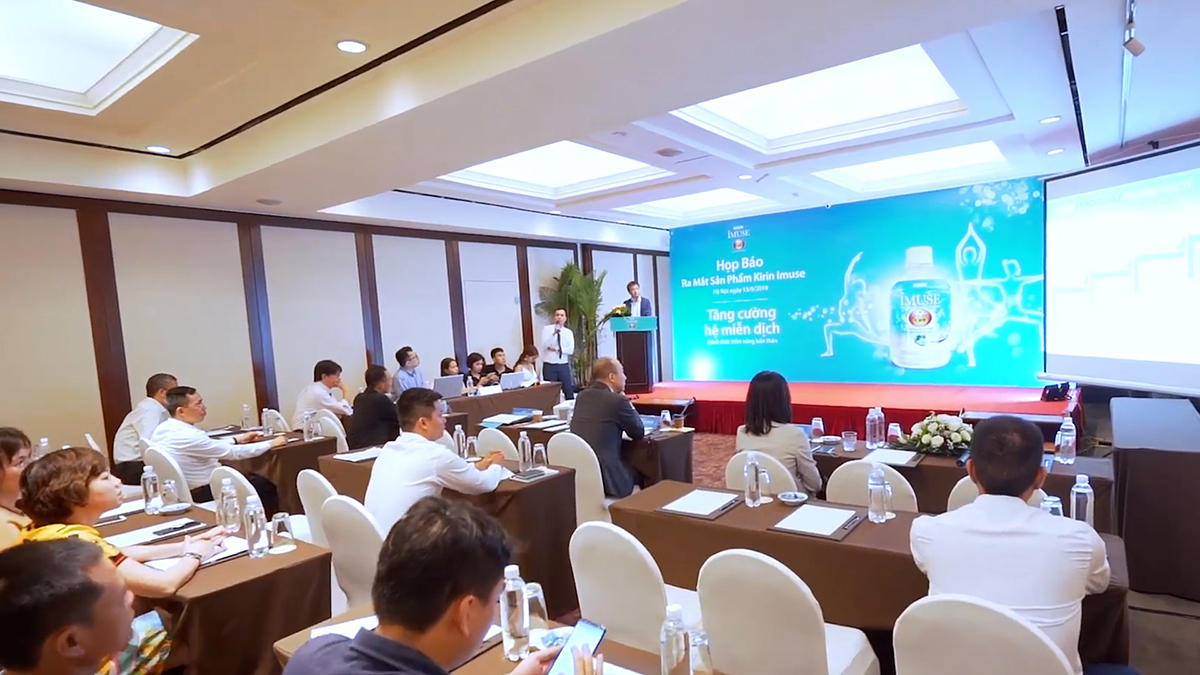
*FFC: (Foods with Function Claims): "FFC" are foods submitted to the Secretary-General of the Consumer Affairs Agency as products whose labels bear function claims based on scientific evidence, under the responsibility of food business operators.
Is it possible to apply the Kirin Group's immunology research that it has focused on to the food & beverages domain? Koichiro Aramaki, who became the President and CEO of Kirin Brewery in 2001, pioneered this initiative. Aramaki joined Kirin Brewery as a researcher. In the 1970s, he researched lactic acid bacteria in the US. Upon his return to Japan, he was seconded to Koiwai Dairy Products, where he developed Koiwai Yogurt Made from 100% Fresh Milk (currently a Food for Specified Health Use).
Later, he received a doctorate for his thesis on cytokine in the field of immunology. The appointment of Aramaki, a former researcher who had served as President of the Pharmaceutical Business Unit and CEO of the Pharmaceutical Company, as President and CEO of Kirin Brewery was unusual for a beer company, but it was natural for Kirin, which regarded itself as part of the fermentation industry.
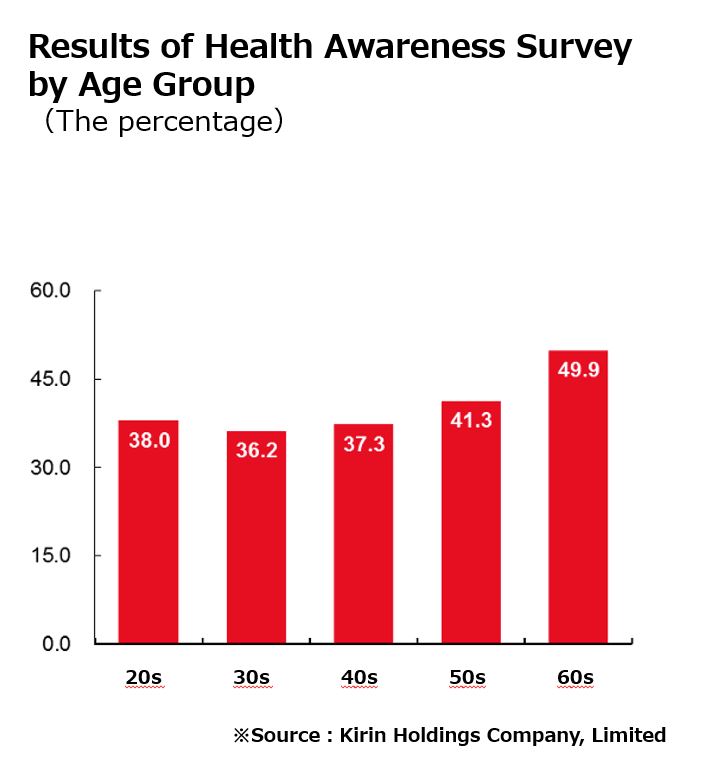
As people became more health-conscious, the existence of lactic acid bacteria, which acts on immune cells, became widely known among the general public, and the market for products related to lactic acid bacteria expanded. Kirin also began testing the expansion of immunology research into the food field. However, lactic acid bacteria is a natural enemy of brewing beer. Strict measures against lactic acid bacteria are necessary during the brewing process because it causes turbidity and an unusual odor. It was a major change for Kirin to begin full-scale research on lactic acid bacteria.
As the application of immunology research progressed, the first lactic acid bacteria that was discovered was "KW lactobacilli," which is now sold with the function claim of reducing eye fatigue. Originally, it was prohibited to bring lactic acid bacteria into a brewery. However, Aramaki, convinced of the potential of lactic acid bacteria, encouraged this unconventional practice. In addition to supplements and yogurt, in 2004, Yawaraka, a low-malt beer containing "KW lactobacilli," went on sale.
Encouraged by Aramaki’s efforts to take on new challenges, in 2010, Kirin discovered lactic acid bacteria that acts on “the Control towers of immune cells,” once thought to be nonexistent. Until then, it had been known that there was lactic acid bacteria that worked on and activated NK cells, one kind of immune cell, but this discovery revealed the existence of lactic acid bacteria that worked on “pDC (plasmacytoid dendritic cells),” the control towers of immune cells, and activated all immune cells. This is the “Lactococcus lactis strain Plasma” that forms the basis for the iMUSE brand.
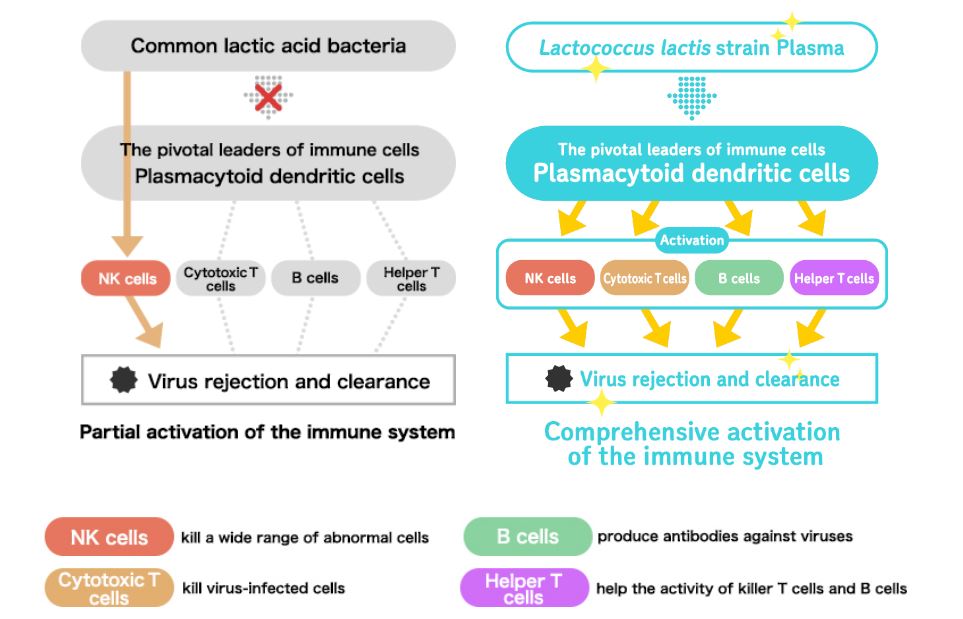
This "Lactococcus lactis strain Plasma" was discovered by Daisuke Fujiwara, Deputy General Manager of the Health Science Department. Fujiwara published a paper in 2012, two years after his discovery. Then, in 2017, the Kirin Group launched the iMUSE brand to support people’s immune system care, centered on “Lactococcus lactis strain Plasma.” On August 7, 2020, Japan’s Consumer Affairs Agency accepted the registration of six products using "Lactococcus lactis strain Plasma" as FFCs.
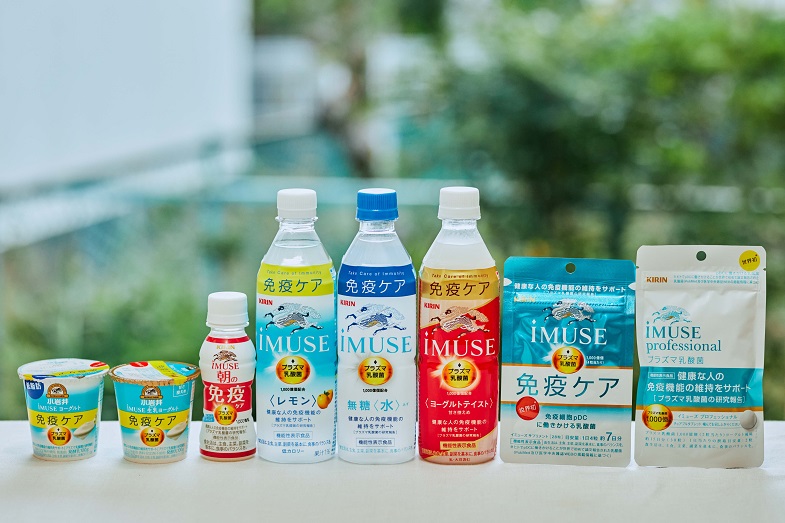
As of September 2021, only "Lactococcus lactis strain Plasma” series were certified as FFCs for the immune system. Because the structure of immunity is so complex, it is not well understood, and it is not easy to demonstrate that products assist in maintaining the immune system. The Kirin Group was able to do so thanks to a large number of papers related to immunity (27 in all, including 12 human studies)*, as well as a long track record of scientific achievements. The Kirin Group was able to utilize its knowledge and experience in the Pharmaceuticals Businesses to determine how to scientifically demonstrate effectiveness.
*As of September, 2021
Helping People to Maintain Good Health and Well-Being and Contributing to Reducing CO2 and Food Loss
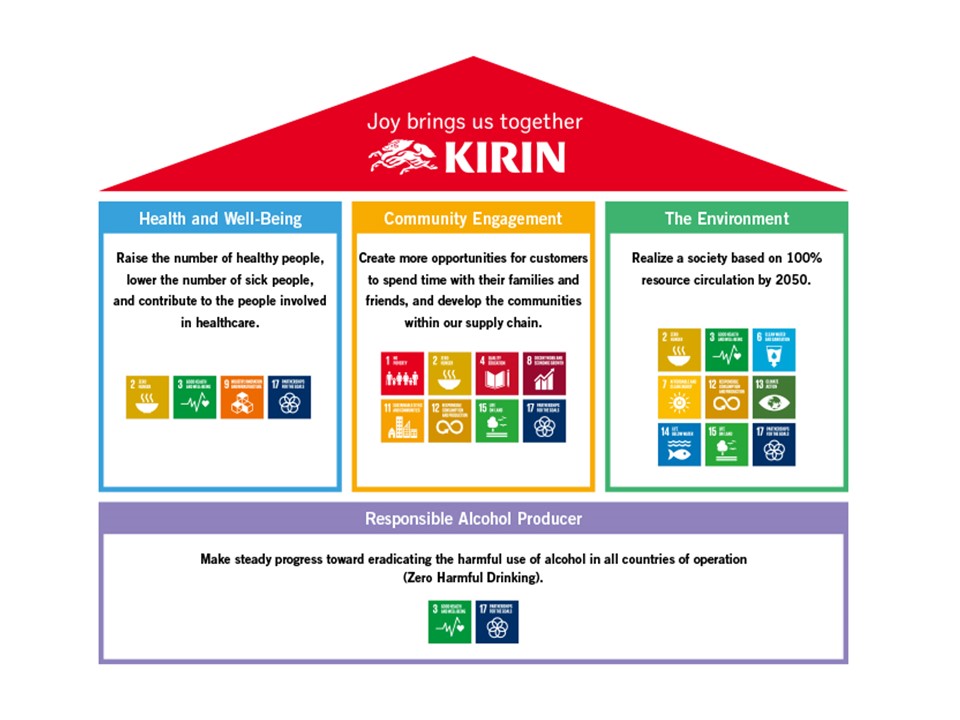
In addition to years of experience, the Kirin Group’s reasons for promoting Health Science business are not unrelated to recent global trends. At the World Health Assembly in May 2010, the "global strategy to reduce the harmful use of alcohol" was proposed. Additionally, in the SDGs, one of the targets under “Goal 3: Ensure healthy lives and promote well-being for all at all ages” is “Strengthen the prevention and treatment of substance abuse, including narcotic drug abuse and harmful use of alcohol.”
As a responsible alcohol producer, the Kirin Group will not be allowed to focus solely on increasing the volume of alcoholic beverages that it sells. Sustainable growth must be maintained by moving forward together with society. Kirin will leverage its foundations in science and undoubted strength in R&D developed thus far to pursue its social purpose.
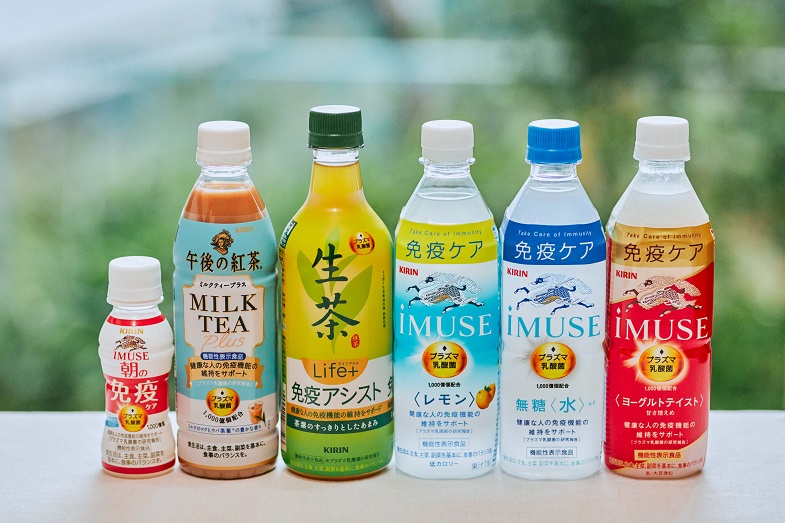
Kirin Beverage’s launch of Kirin Gogo-no-Kocha Milk Tea Plus and Kirin Namacha Lifeplus Immune Assist, both FFCs that use “Lactococcus lactis strain Plasma” to maintain the immune system, in October 2021, was to support the health and well-being of its consumers. The Kirin Group intends to leverage products from these two brands, which enjoy strong brand awareness, with consumers enjoying them on a daily basis, as points of contact to spread the custom of immune care among a wide number of consumers.
The fact it can be used in both black tea and green tea is also a major strength of "Lactococcus lactis strain Plasma." Many types of lactic acid bacteria that have been previously discovered and used in non-alcoholic beverages and foods were effective only when the bacteria are alive. Since "Lactococcus lactis strain Plasma" is effective even as paraprobiotics, i.e., non-active bacteria, it can be used in all types of food.
The advantages of paraprobiotics include not only the fact that they have a many potential applications, but also their ease of global deployment owing to the fact that temperature control is not required for their storage and transportation, as well as the fact that they can contribute to reducing CO2 during storage and transportation. Furthermore, expiration dates, which are short for active bacteria, are greatly extended, which can contribute to reducing food loss.
“Lactococcus lactis strain Plasma,” the Kirin Brand's Silver Bullet*
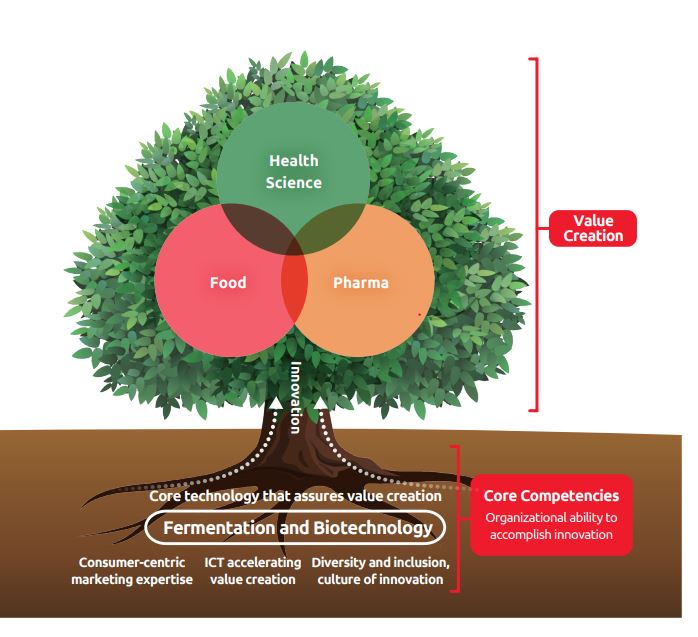
*Silver Bullet:A marketing term that refers to a product brand with a strong presence that changes the overall perception of the corporate brand.
Kirin will contribute to the field of immunology through both the Pharmaceuticals Business and the Food & Beverages Business. This will be a manifestation of the Kirin Group’s vision, in which it aims to become “A global leader in CSV, creating value across our world of Food & Beverages to Pharmaceuticals.”
What value will Kirin’s CSV initiatives based on "Lactococcus lactis strain Plasma" create in society? According to Ryosuke Mizouchi, Senior Executive Officer at Kirin Holdings, the answer is as follows.
“The spread of COVID-19 has dealt a major blow to the world, but “Lactococcus lactis strain Plasma” should be of widespread use to society by helping healthy people maintain their immune systems.
We will contribute to the mental and physical health and well-being of people around the world by applying fermentation technologies in everything from beer production to the Pharmaceuticals Business and Health Science Business. I hope that “Lactococcus lactis strain Plasma” will act as a silver bullet that transforms Kirin from a beer brand to a health science brand.”
Ryosuke Mizouchi
Mr. Mizouchi has been with Kirin group companies since 1982, mainly in marketing insight, international business, and corporate planning departments, and is currently a Senior Executive Officer of Kirin Holdings Company, Limited, overseeing the Creating Shared Value (CSV) function of the whole group.
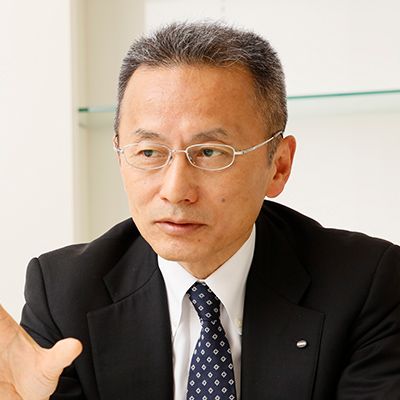
*Stated information as at the date it is made